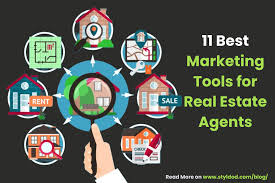- Speed & convenience: Apps and platforms allow users to search, compare, and schedule viewings from anywhere.
- Data & analytics: Many tools provide market trends, valuation estimates, neighborhood insights, and comparable sales to help users make informed decisions.
- Better communication & coordination: From document signing to messaging, digital tools reduce friction in coordinating between buyers, sellers, agents, and service providers.
- Virtual experiences: Virtual tours, 3D models, floor plans, and augmented reality (AR) let buyers “walk through” properties without physically visiting them.
Top Tools & Apps for Buyers and Sellers
Here are some leading tools that are especially useful in 2025 for real estate transactions:
1. Zillow / Trulia / Realtor‑type platforms
- Zillow remains a go-to platform for many buyers to browse listings, check home value estimates, see 3D tours, and get market data. Jotform+3evolverealty.homes+3The Close+3
- Trulia, a Zillow subsidiary, focuses on neighborhood insights, crime maps, and what local residents say about the area. Wikipedia
These platforms help buyers browse properties widely and sellers reach large audiences.
2. CRMs & Lead Management Tools
For sellers (or agents working with them), customer relationship management (CRM) and lead tools are essential:
- Follow Up Boss: Helps capture and manage leads, set reminders, and maintain organized follow-up flows. HousingWire
- Market Leader: Allows users to track who’s opening emails, checking listings, and sends notifications for new leads. The Close
- BoldLeads & Jotform: For lead generation, capture, and automating forms & follow-ups. Jotform
These tools help sellers or their agents stay responsive, nurture potential buyers, and not lose opportunities.
3. Virtual / 3D Tours & Floor Plan Apps
Because many buyers now begin the home‑search online, immersive visuals matter:
- Matterport: Allows creation of immersive 3D virtual tours of properties, giving buyers a realistic walkthrough online. chanty.com
- Magicplan: Uses augmented reality (AR) to generate floor plans and measurements via a smartphone camera. Wikipedia
These tools reduce the number of unnecessary physical visits and help buyers narrow choices.
4. iBuyer & Offer Platforms
Some platforms now make cash offers or simplify the selling process:
- Opendoor (or similar “iBuyer” models) lets sellers get instant offers without listing on the open market. MEFMobile
- Off‑Market.io: Matches sellers with serious buyers, bypasses traditional “days on market,” and emphasizes privacy and faster deals. Off-Market
These are especially useful when sellers want speed, simplicity, or fewer showings.
5. Valuation & Estimation Tools
Knowing a property’s fair value is critical:
- YallaValue: Offers instant automated valuation and professional reports (especially relevant in UAE but similar tools exist elsewhere). Wikipedia
- Many real estate platforms themselves provide “estimated value” (Zillow’s “Zestimate,” etc.), though users should treat them as rough guides.
6. Open House & Event Tools
- Curb Hero: A free app letting sellers or agents have QR‑code based sign‑in sheets, collect visitor info, and integrate with CRMs. HousingWire+1
These help capture leads from in-person showings efficiently.
Tips for Choosing & Using These Tools
- Local relevance: Many platforms are geographic; ensure your city or country is supported (listings, valuation data, etc.).
- Integration: Tools that integrate with CRMs, email systems, or document signing make workflows smoother.
- User experience: Simplicity matters. A too-complex app may not get used consistently.
- Cost vs value: Some tools are free, others subscription-based. Start with core features and expand if needed.
- Verify data: Tools’ estimates or analytics are guides, not gospel—always cross-check with local experts or appraisers.
Digital tools and apps have become indispensable in modern buying and selling of property. For buyers, they bring convenience, transparency, and a way to filter and explore risk‑free from home. For sellers, they help reach more qualified prospects, stay organized, and speed up transactions. As technology continues evolving (AI, AR/VR, predictive analytics), those who adopt and master the right tools will enjoy a competitive edge.
